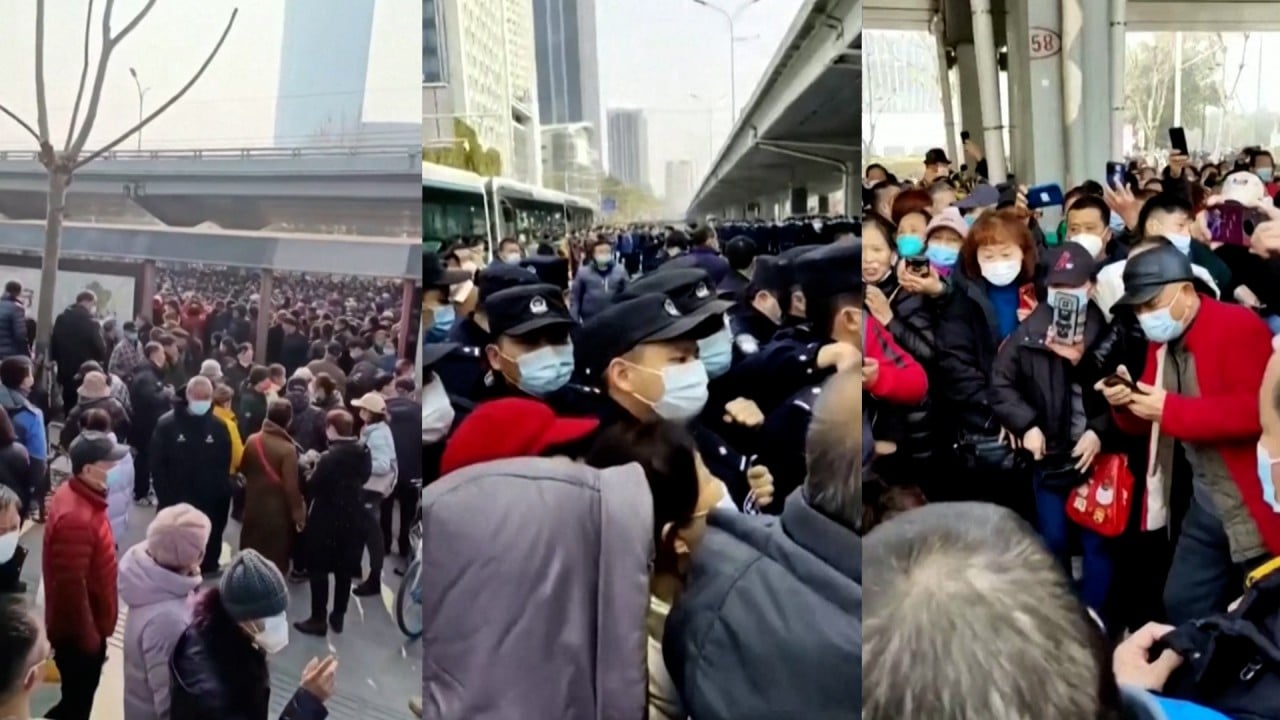
Lawmakers support Hong Kong plan to introduce safety net for policyholders faced with insurer collapse
- The government proposes three options of maximum payout under the scheme - HK$1 million, HK$2 million, or HK$4 million per policy
- Several lawmakers however worry the proposed plan excludes small- and medium-sized enterprises, and covers only individual policyholders
Lawmakers showed their support for the Hong Kong government’s proposed compensation scheme aimed at protecting policyholders who would get up to HK$4 million (US$636,942) per policy in case an insurer collapses, according to Legislative Council discussions which took place on Monday.
Under the proposed policy holders’ protection scheme, policyholders will pay a levy of up to 0.07 per cent of the premium they pay for each policy to build two funds to cover life insurance and general insurance respectively.
The government proposed three options of maximum payout from the scheme - HK$1 million, HK$2 million, or HK$4 million per policy. The bigger the cap of payout, the longer it would take to build the pool of compensation funds with the expected time for the pool to build up ranging from six to 14 years.
The proposal followed a three-month government consultation which concluded last Friday, and the lawmakers’ support now paves the way for the legislative groundwork necessary for the introduction of compensation funds.
“Hong Kong already has compensation funds to protect depositors in case of the collapse of a bank, while the securities sector also has compensation funds to pay investors in case of the collapse of a broker,” said Robert Lee Wai-wang, lawmaker who represents the financial services sector.
“It will be ideal for the insurance sector to also have a compensation arrangement to protect the policyholders in case of the collapse of an insurer.”
Mainland Chinese visitors flock back to Hong Kong to buy life insurance
Currently, Hong Kong has compensation funds that cover policyholders of third party liability motor insurance or insurance policies covering work related injuries. Life and general insurance policies have no such arrangements.
The proposed scheme will align Hong Kong’s insurance sector with the rest of the financial services sector in the city and with overseas markets where such compensation funds exist, according to Salina Yan Mei-mei, Permanent Secretary for Financial Services and the Treasury.
“We believe the proposed scheme will enhance market stability while minimising the risk of moral hazard on insurers and policy holders. We also need to strike a balance between enhancing protection for policyholders while not adding to the burden for the policyholders through high levies,” Yan said.
Several lawmakers however worry the proposed plan will only cover individual policyholders and exclude small- and medium-sized enterprises (SMEs).
“It will be too technical to cover the SMEs so the scheme would not cover them in the initial stage. However, the protection scheme will be expanded to cover the SMEs at a later stage when the scheme will be more mature,” Yan said.
The move follows strong insurance sales growth this year in the city. Leading insurers including AIA, Manulife, Prudential, HSBC Life and Standard Chartered all reported strong sales growth boosted by demand from mainland visitors in the first two months of the year after the borders between Hong Kong and the mainland fully reopened in January.
Hong Kong has seen three general insurance companies collapse in the past 30 years, although none of the life insurance companies have met with a similar fate.


